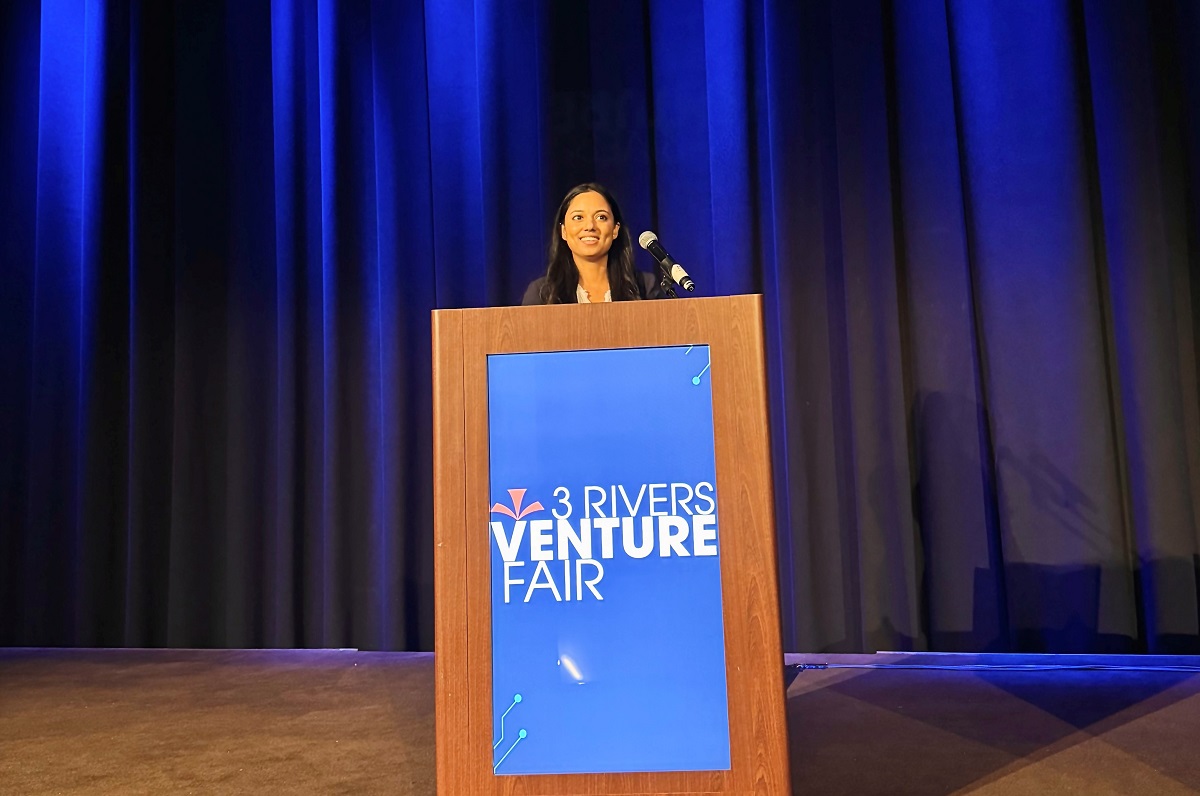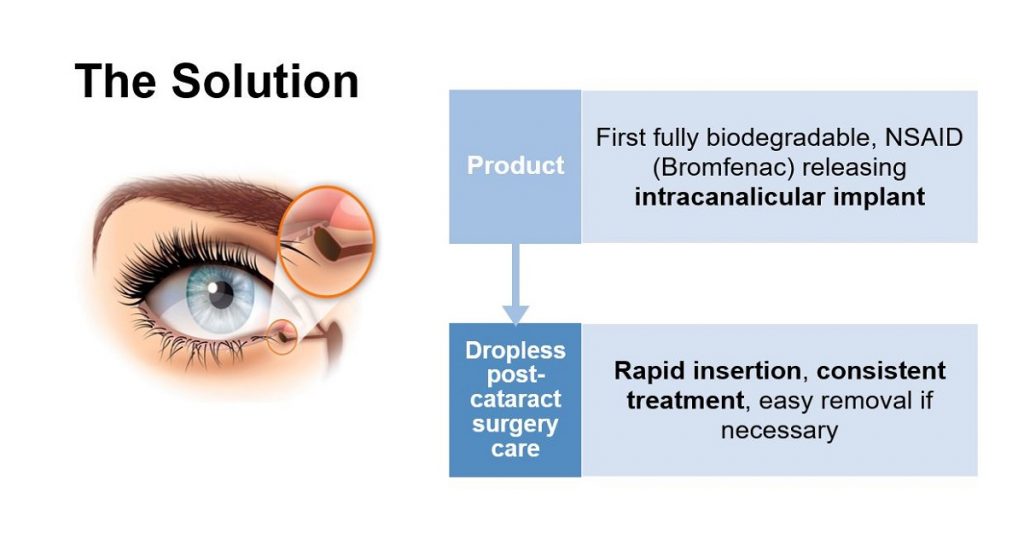Innovation Fellowship helps learners and researchers bring ideas to life

Sai Kurapati found her passion project. Inspired to pursue medicine to bridge health disparities, the third-year medical student at Penn State College of Medicine was eager to contribute when she learned of a project that could make recovery from cataract surgery easier.
“The average age for cataract surgery patients in the U.S. is around 70 years old, and the post-operative care, although quite simple, isn’t always accessible,” Kurapati said of a recovery that requires what can be a cumbersome series of eye drops administered multiple times a day for many weeks. Some patients may not be mentally or physically able to follow such a regimen, especially when compounded by co-existing health conditions or the challenges of independent living.
 In her first year of medical school, Kurapati heard of a project to develop an intracanalicular implant to treat post-cataract surgery inflammation through an I-Corps program offered by the Center for Medical Innovation.
In her first year of medical school, Kurapati heard of a project to develop an intracanalicular implant to treat post-cataract surgery inflammation through an I-Corps program offered by the Center for Medical Innovation.
“I was particularly drawn to the project not only because of my interest in pursuing ophthalmology but also because I believed it was an opportunity to potentially transform patient care across the field while working closely with an interdisciplinary team,” she said.
Medical students have a lot on their plates: classes, clinics, studying, extracurricular activities, and trying to maintain a social life. How could a student with all of these things on a to-do list help move medical advancement from the idea stage to the healthcare marketplace?
Enter Anne DeChant and her team in the Center for Medical Innovation (CMI) at the College of Medicine. DeChant came to Hershey to manage CMI’s Innovation Fellows Program, which provides research trainees interested in translation, commercialization, and business disciplines with an environment to develop new healthcare innovations to address unmet medical needs.
“It’s building on a future of entrepreneurs,” said DeChant. “Part of our job here is to educate and help people prepare for careers, and for the students who want to create products to improve healthcare, there is not a lot of formal training on the business and innovation side. We are working to change that.”
The Innovation Fellowship is a 12-month, non-clinical program that admits fellows each year on a competitive basis. CMI provides funding support for postdocs, medical or graduate students to their principal investigator or faculty member’s department, allowing for dedicated time to learn and practice innovation and technology development activities.
The program is open to medical, postdoc, and graduate students across Penn State. This year’s cohort includes seven students with varied interests, from creating new drugs to help treat colorectal cancer to innovating bone implants that could decrease the likelihood of fractures and breaks.
As part of the fellowship program, participants will align with their principal investigator to further the technology’s development. The program guides fellows through informative workshops, innovation staff coaching, industry mentorship, and customer discovery through I-Corps training.
WATCH BELOW: Science in 60 Seconds with Sai Kurapati: Improving recovery for patients after cataract surgery
“The Innovation Fellows Program empowers biomedical trainees to gain skills and hands-on experience translating research into impactful, real-world solutions,” said Erika Swift, director of the Center for Medical Innovation. “By guiding fellows through key aspects of market readiness, intellectual property, regulatory pathways, and more, we not only help them advance a translational research project but also equip them to become future leaders in delivering innovative healthcare and life science technologies to market.”
It’s a deep dive into everything a student needs to know to make an idea come to life, including lessons on pitching an idea to investors in the hope of gaining funding.
Kurapati learned just that when she participated in the 3 Rivers Venture Fair in October.
“It was a very exciting experience for me,” she said. “It was my first formal pitch presentation to a room full of tech experts, investors, and industry leaders.” Kurapati came in third. “It was a validation of the work that I do. I felt really empowered in that moment.”
Kurapati credits the Innovation Fellowship for deepening her commitment to and passion for ophthalmology.
“This has definitely shaped my career trajectory. I plan to stay involved in innovation and industry mentorship, and I owe much of that to this fellowship.”
If you're having trouble accessing this content, or would like it in another format, please email Penn State Health Marketing & Communications.
